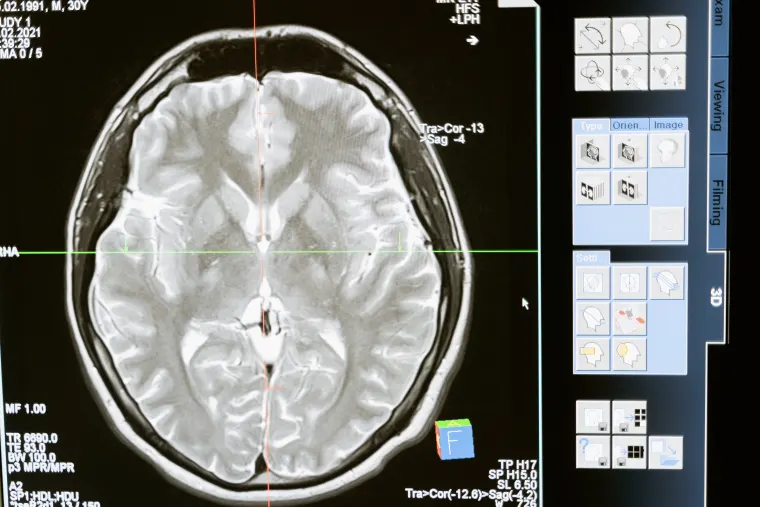Binaural beats are gaining traction as a holistic solution to enhance mental well-being. Yet, the question arises: How effective are they?
DO SOUND AND MUSIC TRULY ALLEVIATE SYMPTOMS OF MENTAL HEALTH ISSUES?
The therapeutic application of sound in mental health is not new. Historically, various cultures have revered sound for its therapeutic potential, a concept modern science is only now exploring in depth.
In this discussion, I spotlight a specific auditory technique poised to bolster mental health and promote better sleep:
Binaural Beats.
Research into these beats has unveiled compelling findings. Curious about how just tuning into certain frequencies can alleviate anxiety, foster restful sleep, and even assist in pain management? Stay with me.
WHAT EXACTLY ARE BINAURAL BEATS, AND WHAT’S THEIR FUNCTION?
Binaural beats, increasingly recognized in the mental health sphere, also go by “brainwave entrainment.” This involves tuning into two distinct frequencies in each ear, prompting the brain to perceive a third, unique tone.
Believed to induce specific mental states, such as relaxation or heightened focus, this third tone has enthusiasts suggesting benefits like reduced anxiety, enhanced sleep, and improved concentration.
Though these claims await more comprehensive validation, emerging studies suggest binaural beats as a potential asset in mental health strategies.

MENTAL HEALTH ADVANTAGES OF BINAURAL BEATS
Research indicates the efficacy of binaural beats in alleviating stress and anxiety.
One specific study noted that individuals engaging with binaural beats daily for 30 minutes saw a notable dip in cortisol, a stress-linked hormone. Furthermore, these beats are credited with better sleep and fostering relaxation.
Some studies suggest these beats may elevate serotonin levels, an essential neurotransmitter for mood stability.
In the realm of cognition, binaural beats also showcase promise. Participants who listened to these beats during specific tasks reported marked performance improvements.
In essence, these beats appear to be a versatile tool, showing potential in stress reduction, sleep enhancement, and cognitive sharpening.
GUIDELINES FOR UTILIZING BINAURAL BEATS TO COUNTER ANXIETY, DEPRESSION, AND STRESS
Binaural beats therapy is a burgeoning avenue in the combat against anxiety, depression, and stress.
While numerous methods exist to harness their potential, a standout strategy involves headphone listening in a calm setting. This approach optimizes the binaural experience, given the clear distinction between the two input frequencies.
Select beats resonating with your objective – be it focus, sleep, or holistic healing. A deeper dive into their specific impacts follows below.
After securing your preferred frequency, settle into a relaxed posture and immerse yourself via headphones for a good 20 minutes. A tangible reduction in anxiety should be evident shortly. With consistent sessions, you might observe a significant decline in stress and depressive symptoms.

BRAINWAVE STATES AND THEIR ADVANTAGES
There are five distinct brainwave patterns: beta, alpha, theta, delta, and gamma. Each frequency offers specific benefits.
Beta waves enhance concentration and attentiveness. Alpha waves induce a sense of tranquility and relaxation. Theta waves bolster memory and encourage profound relaxation. Delta waves are associated with stress reduction and facilitating healing. Lastly, gamma waves heighten cognitive abilities and elevate one’s sense of well-being.
Harnessing these brainwaves might be pivotal for cognitive enhancement or mood elevation.
AREAS WHERE BINAURAL BEATS DEMONSTRATE EFFICACY
ANXIETY:
Research indicates that binaural beats can alleviate mild anxiety symptoms. A study found that daily 30-minute sessions with binaural beats reduced anxiety manifestations among participants.
FOCUS AND ATTENTION:
Research (1,2) reveals that listeners of binaural beats exhibited heightened focus and sustained attention over longer durations.
MEMORY:
Certain studies (3) identified that binaural beats listeners benefited from improved memory retrieval.
CREATIVITY:
Binaural beats, known to amplify cognitive functionality and well-being, consequently foster enhanced creativity and problem-solving capabilities.
PAIN PERCEPTION:
An investigation highlighted the efficacy of binaural beats in moderating pain intensity among participants.
SLEEP QUALITY:
A study suggested that theta-range binaural beats enhanced sleep quality for its participants.
MEDITATION:
Binaural beats can enrich meditation practices by facilitating deeper states of consciousness, given their ability to synchronize the brain’s hemispheres, leading to a profound meditation experience.
WRAPPING IT UP…
Binaural beats present a plethora of potential advantages, positioning them as an enticing choice for those aiming to bolster their well-being. Conveniently incorporated into hectic routines, their empirical backing makes them worth exploring.
From personal experience, I advocate for binaural beats, integrating them during walks, moments of overwhelm, or meditation sessions. Their benefits have been palpable to me.
With science delving deeper into the realm of auditory effects on well-being, consider binaural beats the next time you seek tranquility, focus, or restful sleep.
Free binaural beats are available on YouTube. For those intrigued by their benefits, specialized or personalized tracks are available on certain websites.
Note: While I am unaffiliated with channels or links herein, some links may contain affiliate codes supporting my endeavors in promoting mental well-being. If mental health support resonates with you or someone you know, I invite you to connect with me or explore my website for additional resources.
